
7th Grade Civics Test 3
Assessment
•
•
History
•
7th Grade
•
78 plays
•
Hard
Improve your activity
Higher order questions
Match
•
Reorder
•
Categorization
.svg)
actions
Add similar questions
Add answer explanations
Translate quiz
Tag questions with standards
More options
56 questions
Show answers
1.
Multiple Choice
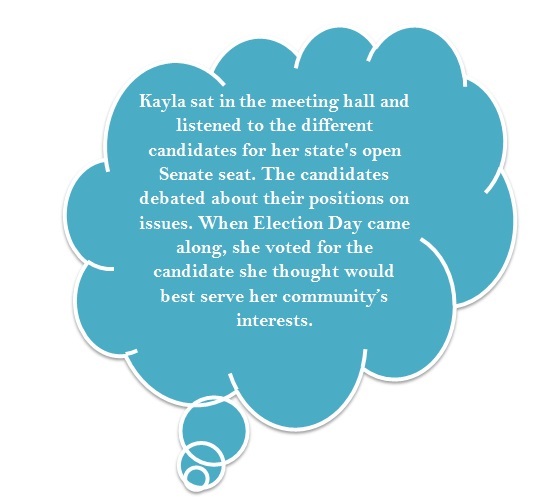
Direct democracy
Representative democracy
Oligarchy
Monarchy
2.
Multiple Choice
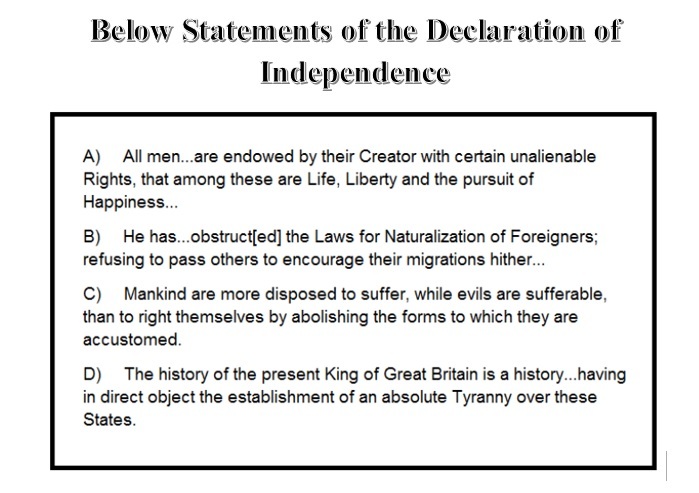
A
B
C
D
3.
Multiple Choice
Acts of sabotage against British merchants
Declaring independence from Britain
Joining the army instead of the militia
Supporting the British monarchy
4.
Multiple Choice
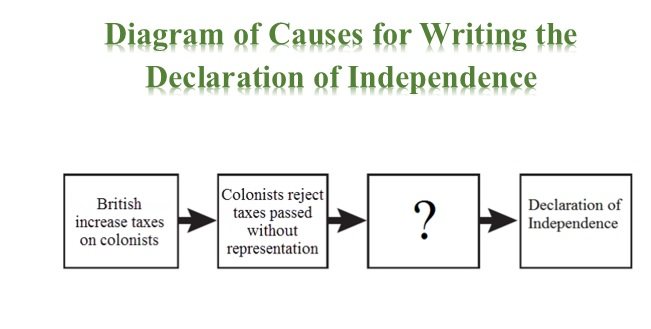
British eliminate all taxes on colonists
British ignore colonist grievances
Colonists vote to elect new member of Parliament
Colonist send troops to Britain in protest
5.
Multiple Choice
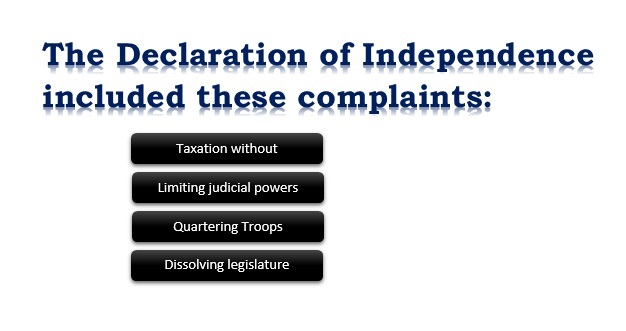
Requiring colonists to send representation to Parliament
Suspending trial by jury in many cases
Ordering colonists to move from Native American land
Allowing the wealthy to avoid local laws
6.
Multiple Choice
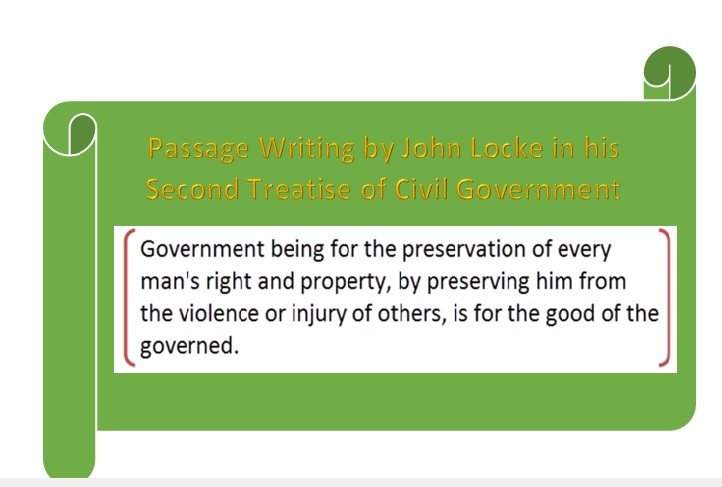
He has affected to render the Militaryindependent of and superior to the Civil power.
He has erected a multitude of New Offices, and sent hither swarms of Officers to harass our people...
He has kept among us, in times of peace, Standing Armies without the Consent of our legislatures.
He has kept among us, in times of peace, Standing Armies without the Consent of our legislatures.
7.
Multiple Choice
The government did not have a separate judicial branch.
The states could not print their own currency.
The president was able to spend taxes freely
The government had too much power over trade.
8.
Multiple Choice
It required the president to resolve disputes between states.
It created an executive branch to enforce laws.
It gave each state sovereign authority over its laws.
It required unanimous consent of states to create new laws.
9.
Multiple Choice
Give land to the homeless
Fight wars on foreign soil
Keep the homeland at peace
Provide citizens with insurance
10.
Multiple Choice
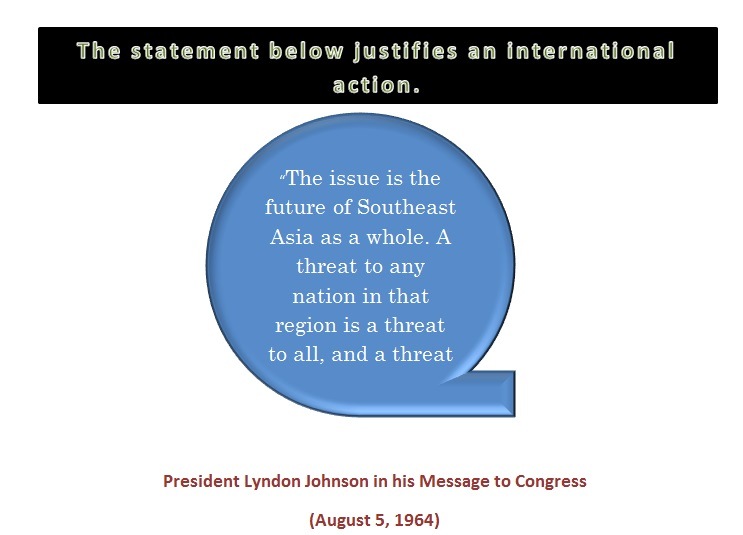
Sending troops to stabilize a region
Using sanctions against a country
Sending humanitarian aid to a country
Using nuclear weapons to end a war
11.
Multiple Choice
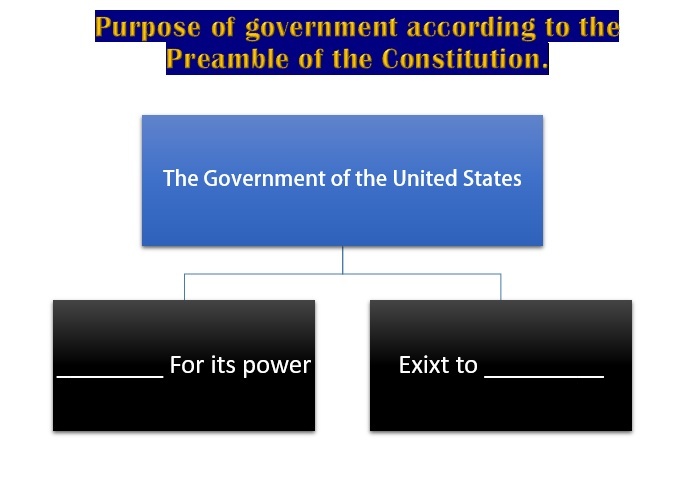
depends on people; serve the people
depends on law; maintain the law
depends onlegislators; serve legislators
depends on liberty; maintain those liberties
12.
Multiple Choice
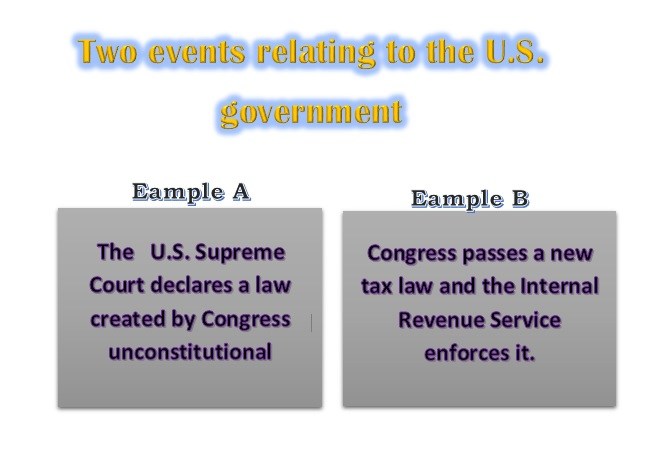
Example A: checks and balances; Example B: separation of powers
Example A: checks and balances; Example B: judicial review
Example A: separation of powers; Example B: individual rights
Example A: separation of powers; Example B: checks and balances
13.
Multiple Choice
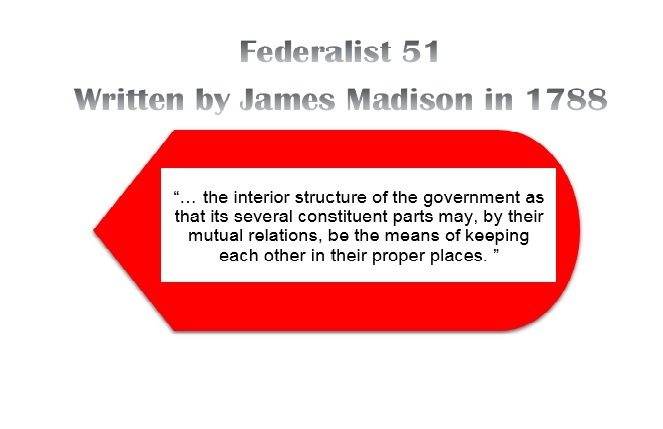
Popular sovereignty
Judicial review
Checks and balances
Separation of powers
14.
Multiple Choice
There is no need for a separate Bill of Rights.
The Constitution does not give enough power to the states.
The Constitution will not strengthen the government.
A strong national government will protect the people in times of crisis.
15.
Multiple Choice
It holds government officials and institutions accountable to the law.
It requires government officials and institutions to create new laws.
It prevents government officials and institutions from making their work public.
It ensures government officials and institutions are exempt from laws.
16.
Multiple Choice
Oligarchy
Autocracy
Democracy
Communism
17.
Multiple Choice
Aliens
Citizens
Immigrants
Residents
18.
Multiple Choice
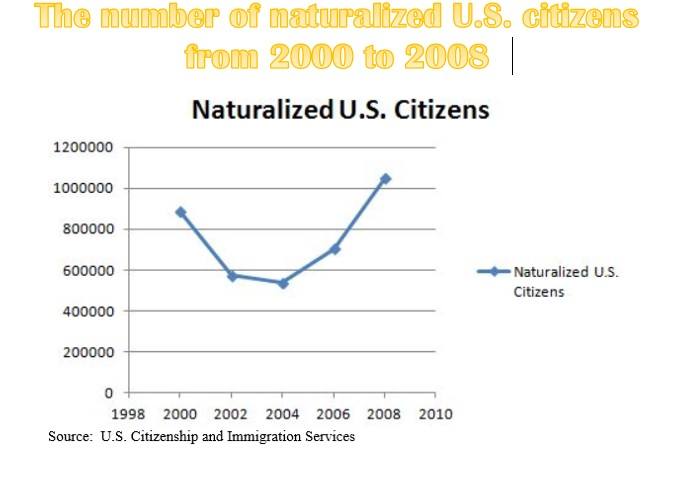
Naturalization has become less popular than it was in the past
Naturalization has steadily increased voter turnout.
Naturalization laws have become increasingly strict over time.
Naturalization leads to a larger pool of voters.
19.
Multiple Choice
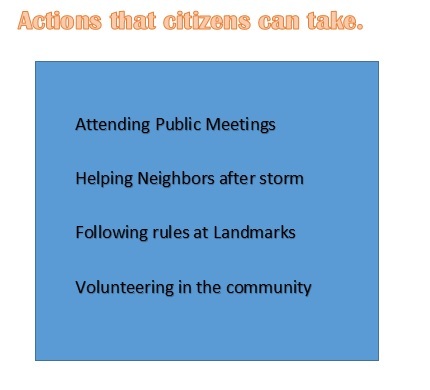
The democracy will fail.
The common good will suffer.
The citizen will be charged with a crime.
The citizen will be fined.
20.
Multiple Choice
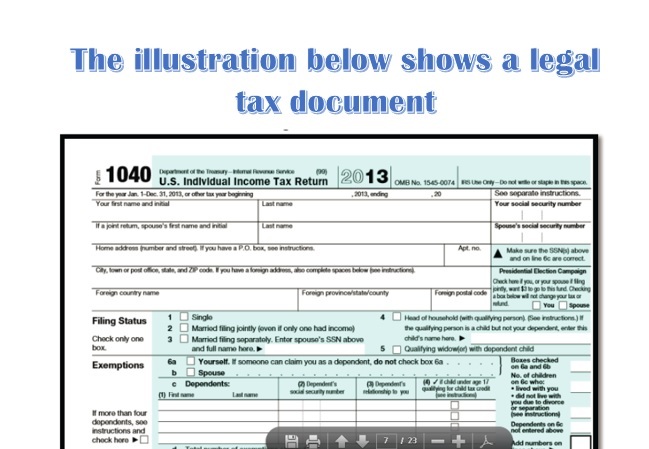
To ensure that students can go to private schools
To ensure the operation of international trade
To provide a fair report of business practices
To provide social programs for needy citizens
21.
Multiple Choice
Freedom to publish opinions in the local newspaper
The ability to own a gun, as long as the laws are followed
The guarantee of a well-paying job
Freedom to join the church of choice
22.
Multiple Choice
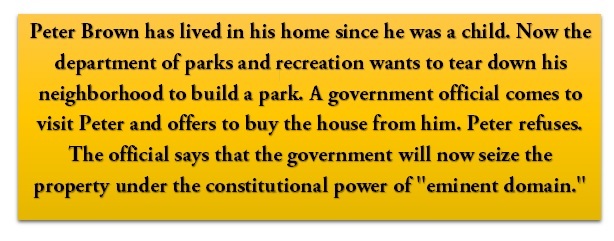
If Peter could prove that he had paid the full price of the house already
If Peter was born as a citizen of the United States, not a naturalized citizen or resident
If the governmentdid not make a reasonable effort to build the park in an uninhabited area
If the government did not offer him fair market price for his home
23.
Multiple Choice
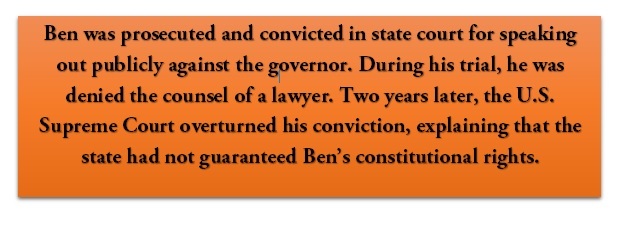
Amendment I (free speech) and Amendment VI(due process)
Amendment I (free press) and Amendment IV (search and seizure)
Amendment IX (enumerated rights) and Amendment VI(due process)
Amendment IX(unenumerated rights) and Amendment IV (search and seizure)
24.
Multiple Choice
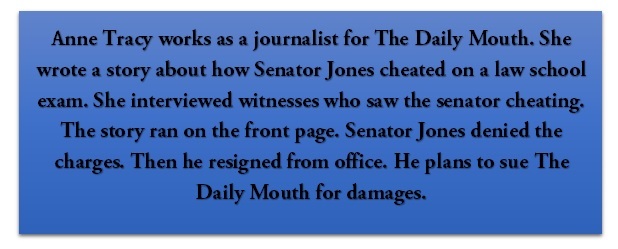
He could sue the paper for libel and could win the case if he proved that Tracy had a grudge against him.
He could sue the paper for slander and could win the case if he proved that Tracy had a grudge against him.
He could sue the paper for libel and could win the case if he proved that the accusations were untrue and his reputation was hurt.
He could sue the paper for slander and could win the case if he proved that the accusations were untrue and his reputation was hurt.
25.
Multiple Choice
a government more likely to hide its actions from the people
a government more responsive to the needs of the people
the establishment of English as the official language of the United States
the establishment of government-run news organizations
26.
Multiple Choice
Trial by jury
Free speech
Right to bear arms
Due process
27.
Multiple Choice
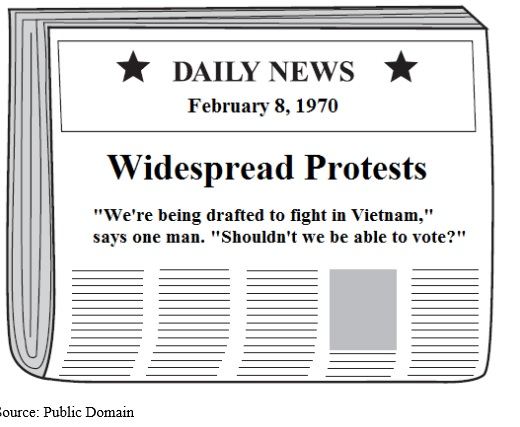
It led to the Fifteenth Amendment, allowing racial minorities to vote.
It led to the Nineteenth Amendment, allowing women to vote.
It led to the Twenty-Sixth Amendment, allowing 18-year-olds to vote.
It led to the Twenty-Sixth Amendment, allowing 21-year-olds to vote.
28.
Multiple Choice
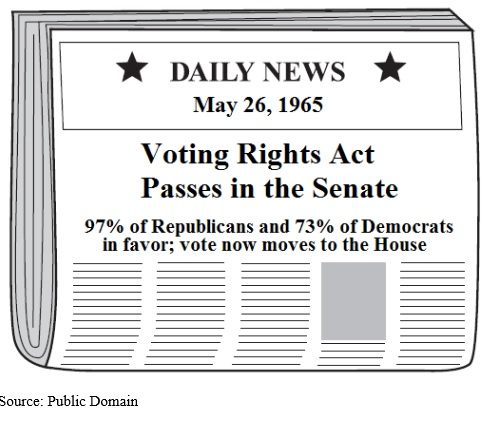
It enforced the Fifteenth Amendment, protecting the right of racial minorities to vote.
It enforced the Nineteenth Amendment, protecting the right of women to vote.
It extended suffrage to U.S. citizens, allowing 21-year-olds to vote.
It extended suffrage to U.S. citizens, allowing 18-year-olds to vote.
29.
Multiple Choice
States could continue segregation as long as facilities were separate but equal
Individuals of different races voluntarily stopped all forms of school segregation.
The federal government ordered that states desegregate classes.
Desegregation was ordered for only high schools
30.
Multiple Choice
The right to freedom of speech; it provides them with the ability to speak to their attorneys without fear of incrimination.
The protection against self-incrimination; it informs them that speaking to law enforcement could incriminate them.
The protection of due process; it prevents convicted offenders from receiving cruel and unusual punishments.
The right to freedom of assembly; it prevents law enforcement from asking them questions without the presence of an attorney.
31.
Multiple Choice
Democrats tend to favor tax increases to support new social programs more than Republicans.
Republicans tend to favor tax increases to support new social programs more than Democrats.
Democrats tend to favor tax decreases, while Republicans tend to favor keeping tax rates the same.
Republicans tend to favor tax increases, while Democrats tend to favor keeping tax rates the same.
32.
Multiple Choice
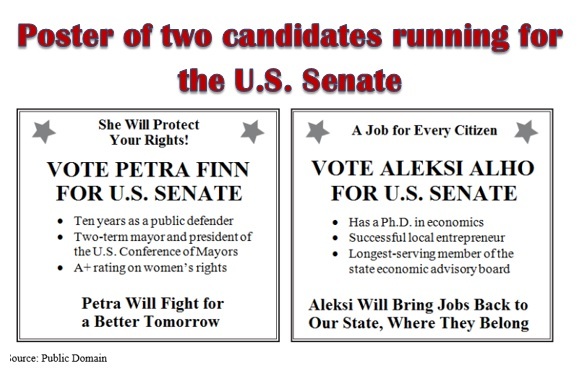
A voter concerned about leadership experience
A voter concerned about women’s rights
A voter concerned about women’s rights
A voter concerned about protecting the rights of the accused
A voter concerned about rising unemployment in the state
33.
Multiple Choice
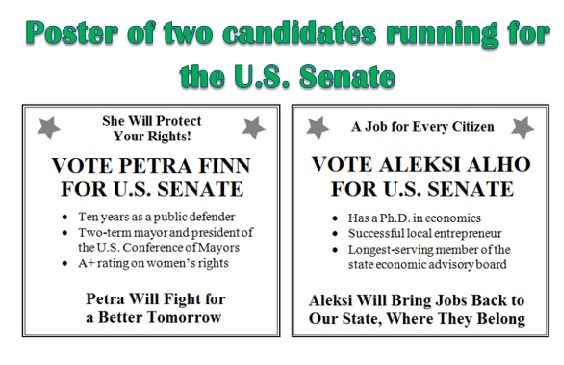
Her business experience
Her educational experience
Her political experience
Her lobbyist experience
34.
Multiple Choice
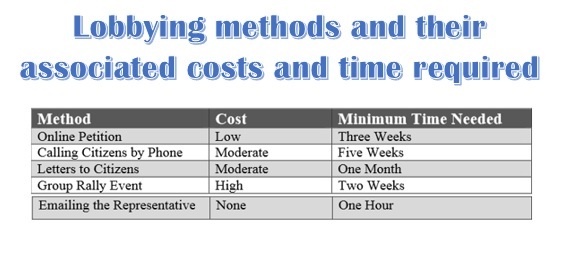
An online petition and letters to citizens
Calling citizens by phone and letters to citizens
Emailing the representative and an online petition
Group rally event and emailing the representative
35.
Multiple Choice
Elected officials are better able to measure public opinion if there are no interfering factions.
Lobbyists will balance one another in government influence if they are subject to fewer laws.
Political ads, despite their biases, are best able to inform citizens when there are no regulations.
The media, despite its biases, are best able to government when they are free.monitor the
36.
Multiple Choice
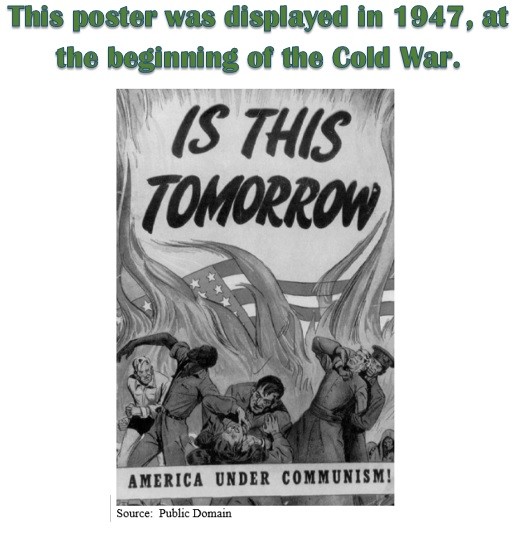
Advertisement
Entertainment
Factual
Propaganda
37.
Multiple Choice
To encourage people to move to government lands
To discourage people from moving to government lands
To encourage people to move to California
To discourage people from moving to California
38.
Multiple Choice

Identify public policy alternatives by talking to her doctor about options to locate funding for shots.
Outline her citizen-action plan to the department proposing it offer a low-cost vaccination clinic.
local health
Evaluate public policy alternatives by speaking to federal health officials about similar efforts in other communities.
Conduct background research by visiting reliable web sites to read about side effects of flu shots.
39.
Multiple Choice
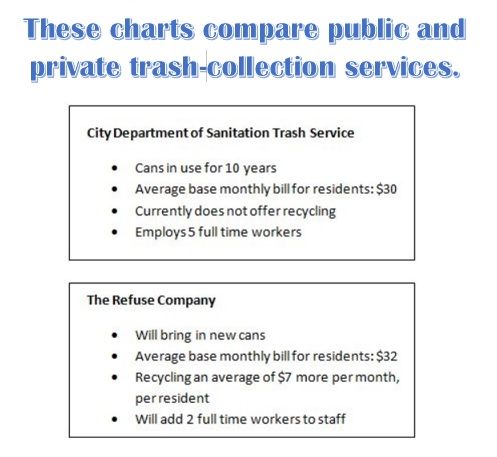
Can replacement will be easier if the city service collects trash.
Recycling will increase if the city service collects trash.
Residents will pay less if the city service collects trash.
There will be more jobs available if the city service collects trash.
40.
Multiple Choice
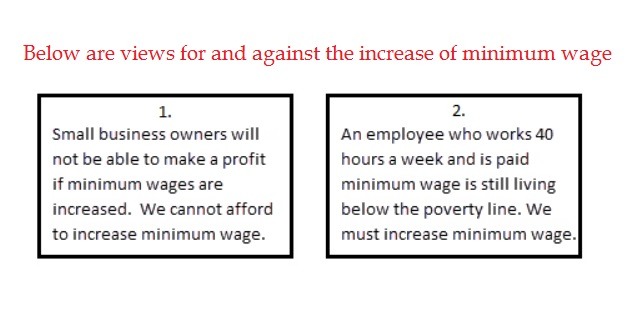
Minimum wage changes impact both small business owners and employees.
Minimum wage changes impact small-business owners more than employees.
Minimum wage changes impact employees more than small-business owners.
Minimum wage changes have little impact employees owners or small-business
41.
Multiple Choice

Fred, because he wants the vacant lot near him to be used for construction
Michaela, because public funding would be split between two hospitals
Carlos, because he will profit from supplying the new business
Gina, because she will need to find work when she graduates
42.
Multiple Choice
Congress lifting the oil embargo on a formerly communist government
A Supreme Court hearing on worker discrimination based on national origin
Congress voting to construct an aid center in Florida for political refugees
A Supreme Court justice voting to take a case involving his country of birth
43.
Multiple Choice
Samantha teaches others about the history of the United Nations (UN).
Jada volunteers to help raise funds for the United Nations Children’s Fund (UNICEF).
Ethan writes a report on the origins of the North Atlantic Treaty Organization (NATO).
David reads the annual report published by the World Trade Organization (WTO).
44.
Multiple Choice
Socialism
Communism
Democracy
Autocracy
45.
Multiple Choice
Central government
Local government
State government
Regional government
46.
Multiple Choice
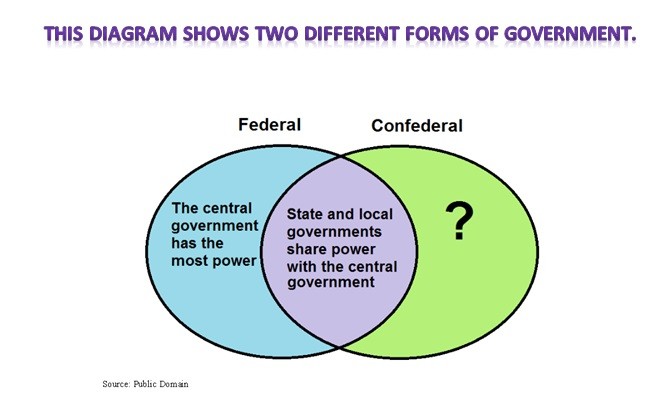
In a confederal system, city governments have the most power.
In a confederal system, international associations have the most power.
In a confederal system, state governments have the most power.
In a confederal system, the people have the most power.
47.
Multiple Choice
U.S. Senate proposes treaties; the president carries out foreign treaties.
U.S. Senate negotiates foreign treaties; the president approves treaties.
U.S. Senate carries out foreign treaties; the president proposes treaties.
U.S. Senate ratifies treaties; the president negotiates foreign treaties.
48.
Multiple Choice
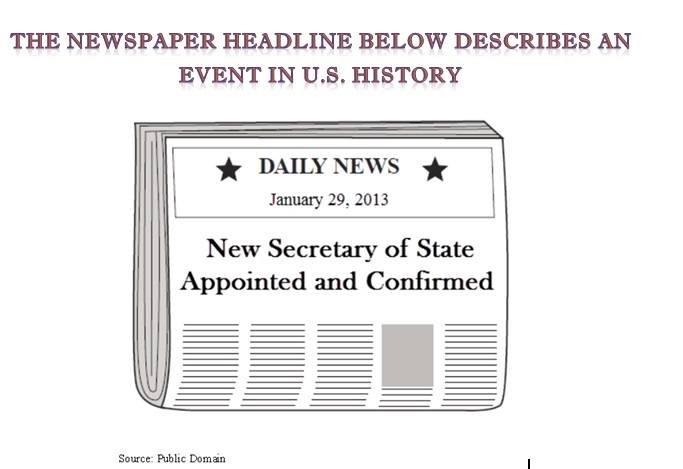
Senate and president
House of Representatives and Senate
Supreme Court and president
Supreme Court and House of Representatives
49.
Multiple Choice
Only the federal government provides for public welfare
Only the federal government charters banks
Only the federal government borrows money
Only the federal government regulates interstate trade
50.
Multiple Choice
Two-thirds of each houseof Congress votes to propose
Two-thirds of citizens nationwide vote to propose
Three-fourths of state legislatures vote to propose
Three-fourths of each house of Congressvotes to propose.
51.
Multiple Choice
To prevent the Supreme Court from being eliminated
To keep some states from being too powerful
To allow the Constitution to be adjusted as times change
To give the president a role in changing the government
52.
Multiple Choice
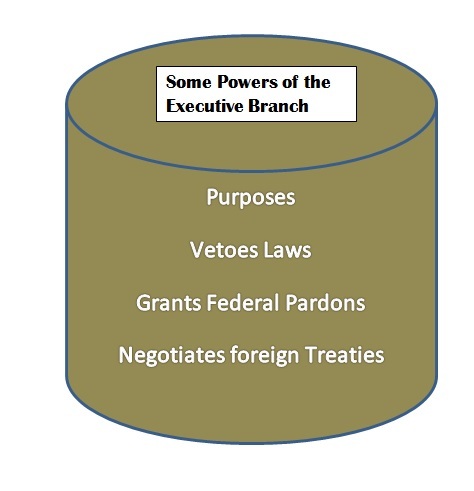
Appoints federal judges
Declares acts of Congress unconstitutional
Ratifies treaties
Impeaches and removes judges
53.
Multiple Choice
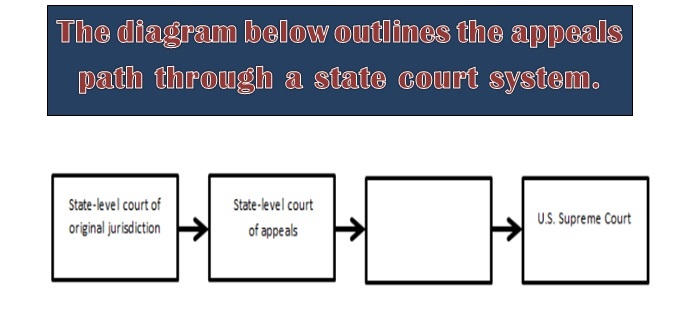
Court of Veterans Appeals
Florida Supreme Court
U.S. court of appeals
State-level court of claims
54.
Multiple Choice
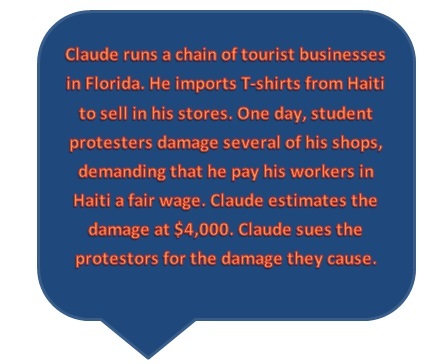
This is a local small-claims case.
This is a local challenge to international trade.
This is a federal small-claims case.
This is a federal challenge to international trade.
55.
Multiple Choice
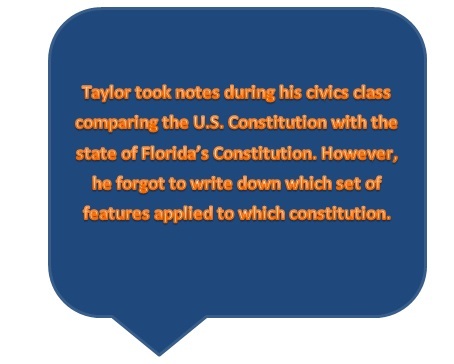
He remembers that the Florida Constitution does not have a bill of rights, but the U.S. Constitution does.
He remembers that the Florida Constitution does not allow for the executive branch to establish a cabinet, but the U.S. Constitution does.
He remembers that the Florida Constitution has five methods to propose an amendment, but the U.S. Constitution only has two.
He remembers that the Florida Constitutiongives the executive branch power over military forces, while the U.S. Constitution does not.
56.
Multiple Choice
Delivering mail
Granting teacher certificates
Minting quarters
Providing fire protection
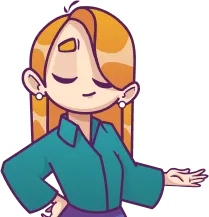
Explore this activity with a free account
Find a similar activity
Create activity tailored to your needs using
.svg)

Becoming a Citizen Duties and Responsibilities
•
7th - 9th Grade

Civics
•
8th Grade

Citizenship
•
7th Grade

The Constitution and Amendments to the Constitution
•
11th Grade

Road to Revolution
•
7th Grade

Voting
•
12th Grade

Fall of The Roman Empire
•
7th - 8th Grade

Creating the Bill of Rights
•
8th Grade